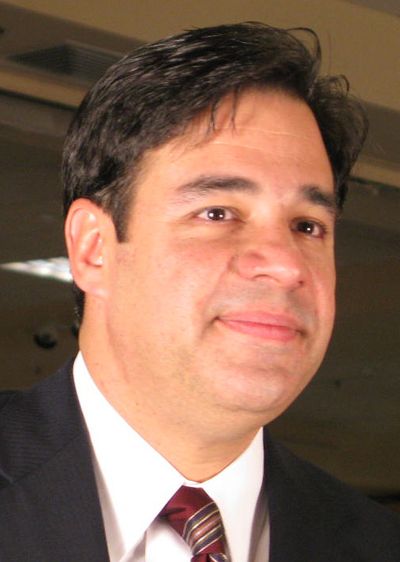Idaho rep’s bill would speed geothermal exploration

BOISE - Idaho Congressman Raul Labrador is pushing legislation in Congress to ease restrictions on geothermal exploration on federal lands, a move experts say could lead to more development of a “green” energy source for which the United States is the world’s leading producer.
The bill, H.R. 2171, cleared a House committee on a bipartisan, 26-16 vote this week, and is now headed to the full House for a vote, likely in the fall.
“What it allows them to do is get out there quickly and drill what are called ‘slim holes,’” said Walter Snyder, a geosciences professor at Boise State University and director of the Intermountain West Geothermal Consortium. Those test holes, he said, are “not really a well … for production.” They’re just big enough for developers to drop thermometers down to determine the temperature of the underground natural hot water, and do other evaluation to see if it’s worth drilling production wells in the area.
The measure would exempt those test wells on federal lands, under existing federal leases, from the requirement for an additional environmental impact statement under the National Environmental Policy Act. Developers already submit environmental assessments for their leases; full environmental impact statements still would be required before drilling production wells.
Snyder said, “One of the longstanding issues in geothermal development is it takes time to get permits and get things lined up.” Drilling a production well for geothermal energy typically costs $5 million, he said.
Douglas Glaspey, chief operating officer for U.S. Geothermal, the operator of Idaho’s only commercial geothermal generating plant at Raft River, said, “It’s not unusual for us to see nine months to a year to get a permit to drill one of those small holes. So if we could shorten that time frame, that is important to us, yes.”
The Geothermal Energy Association, of which U.S. Geothermal is a member, testified in favor of Labrador’s bill when it came up for its hearing in the House Committee on Natural Resources on Wednesday.
In addition to operating Raft River, U.S. Geothermal is developing the Neal Hot Springs geothermal generating plant in eastern Oregon, near Vale, about 25 miles from the Idaho line; when that comes on line, it’ll be the first commercial geothermal plant in Oregon.
“I think that anything that accelerates geothermal development is good for the United States,” Glaspey said. “Geothermal power generation is baseload power and it provides us with energy security and all those good, green things. It’s clean, it’s green, it’s renewable and it’s on 24 hours a day, which is the only renewable energy source that is.”
Idaho has a long history of small-scale use of geothermal power; natural hot water heats the state Capitol and numerous downtown Boise buildings, including homes and office buildings. Studies suggest Idaho could have the third-biggest geothermal energy resource in the nation, though little has yet been developed.
Snyder said after reading Labrador’s bill, he was impressed with its limits - to be exempt from the permit requirement, test wells would be limited in size, site disturbance would be strictly limited and the drill site would have to be restored to its previous condition within 45 days. “I was surprised at how reasonable the restrictions are,” he said.
Labrador said, “I am pleased that this necessary piece of legislation, and one that is particularly good for the state of Idaho, is gaining traction in the House.”
The freshman Republican is the lead sponsor of the bill, and has 11 co-sponsors, including Rep. Doc Hastings, R-Wash. In the House committee vote on the bill, all Republicans on the committee plus two of the panel’s Democrats voted for it.
Said Labrador, “We need to harness this clean, renewable base load form of energy, which is readily available in several western states.”
The measure is the second that Labrador has introduced in his first year in Congress; the first was H.R. 846, to ban the president from creating national parks or monuments in Idaho except by express authorization of Congress; that bill hasn’t had a hearing and has no co-sponsors.